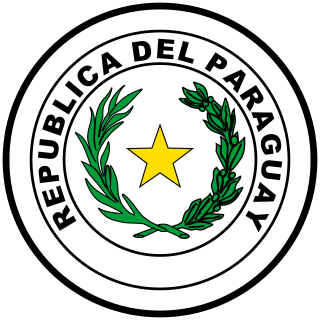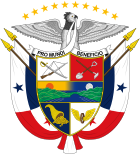
Human rights in Brazil include the right to life and freedom of speech; and condemnation of slavery and torture. The nation ratified the American Convention on Human Rights. The 2017 Freedom in the World report by Freedom House gives Brazil a score of "2" for both political rights and civil liberties; "1" represents the most free, and "7", the least.

Femicide or feminicide is a term for the murdering of women, often because of their gender. Femicide can be perpetrated by either sex but is more often committed by men. This is most likely due to unequal power between men and women as well as harmful gender roles, stereotypes, or social norms.
Human rights in Finland are freedom of speech, religion, association, and assembly as upheld in law and in practice. Individuals are guaranteed basic rights under the constitution, by legislative acts, and in treaties relating to human rights ratified by the Finnish government. The constitution provides for an independent judiciary.

Human rights in Kyrgyzstan improved after the ouster of President Askar Akayev in the 2005 Tulip Revolution and the installment of a more democratic government under Roza Otunbayeva. While the country is performing well compared to other states in Central Asia, many human rights violations still take place. While LGBT rights have been declining in recent years, freedom of press has been improving.

Bolivia's constitution and laws technically guarantee a wide range of human rights, but in practice these rights very often fail to be respected and enforced. “The result of perpetual rights violations by the Bolivian government against its people,” according to the Foundation for Sustainable Development, “has fueled a palpable sense of desperation and anger throughout the country.”
Human rights in Mexico refers to moral principles or norms that describe certain standards of human behaviour in Mexico, and are regularly protected as legal rights in municipal and international law. The problems include torture, extrajudicial killings and summary executions, police repression, sexual murder, and, more recently, news reporter assassinations.

In 2011, the then Algerian president Abdelaziz Bouteflika lifted a state of emergency that had been in place since the end of the Algerian Civil War in 2002, as a result of the Arab Spring protests that had occurred throughout the Arab world.

According to the U.S. Department of State's annual report on human rights in Mali for 2003, Mali's government generally respects the human rights of its citizens and observes relevant constitutional provisions and prohibitions.

Technically speaking, Paraguayan law prohibits discrimination on grounds of gender, race, language, disability, or social status, but there is nonetheless widespread discrimination.

Gustavo Andrés Gorriti Ellenbogen is a Peruvian journalist known for his reporting on rebel groups, government corruption, and drug trafficking. In 2011, the European Journalism Centre described him as having "been awarded more prizes than probably any other Peruvian journalist". He is the founder of IDL-Reporteros.

There were widespread reports of systematic and escalating violations of human rights in Zimbabwe under the regime of Robert Mugabe and his party, ZANU-PF, between 1980 and 2017.

Angola has long been severely criticized for its human rights record. A 2012 report by the U.S. Department of State said, "The three most important human rights abuses [in 2012] were official corruption and impunity; limits on the freedoms of assembly, association, speech, and press; and cruel and excessive punishment, including reported cases of torture and beatings as well as unlawful killings by police and other security personnel. Other human rights abuses included: harsh and potentially life-threatening prison conditions; arbitrary arrest and detention; lengthy pretrial detention; impunity for human rights abusers; lack of judicial process and judicial inefficiency; infringements on citizens' privacy rights and forced evictions without compensation; restrictions on nongovernmental organizations; discrimination and violence against women; abuse of children; trafficking in persons; discrimination against persons with disabilities, indigenous people, and persons with HIV/AIDS; limits on workers' rights; and forced labor." In 2022, Freedom House rated Angola "not free".

Concerns about human rights in Chile include discrimination against indigenous populations; societal violence and discrimination against women, children, and lesbian, gay, bisexual, and transgender (LGBT) people; child labor; and harsh prison conditions and treatment. Additional human rights concerns in the country include use of excessive force and abuse by security forces, isolated reports of government corruption, and anti-Semitism. Authorities generally maintain effective control over the security forces. However, security forces occasionally commit human rights abuses. The government generally takes steps to prosecute officials who commit abuses. Nevertheless, many human rights organizations contend that security officials accused of committing abuses have impunity.
The history of human rights in Argentina is affected by the last civil-military dictatorship in the country (1976-1983) and its aftermath. The dictatorship is known in North America as the "Dirty War", a named coined by the dictatorship itself to justify their actions of State-sponsored terrorism against Argentine citizenry, which were backed by the United States as part of their planned Operation Condor, and carried out primarily by Jorge Rafael Videla's de facto rule (1976-1981), but also after it and until democracy was restored in 1983. However, the human rights situation in Argentina has improved significantly since the end of the dictatorship.

The human-rights situation in Benin is considered to be generally above average for sub-Saharan Africa.

Human rights in Zambia are addressed in Zambia's constitution. However, the Zambia 2012 Human Rights Report of the United States Department of State noted that in general, the government's human rights record remained poor. The 2021 version of this report noted improvements in many areas.
La Prensa is a conservative Panamanian newspaper founded in 1980. Established by I. Roberto Eisenmann Jr. during a period of military dictatorship, La Prensa built an international reputation as an independent nationalist voice, and has been described by some admirers as "Panama's leading opposition newspaper" and its newspaper of record.

Togo in West Africa is currently rated as "Partly Free" by Freedom House.

Violence against women in Guatemala reached severe levels during the long-running Guatemalan Civil War (1960-1996), and the continuing impact of that conflict has contributed to the present high levels of violence against women in that nation. During the armed conflict, rape was used as a weapon of war.

Human rights in Suriname are currently recognised under the Constitution of the Republic of Suriname of 1987. Suriname is a constitutional democracy with a president elected by the unicameral National Assembly. The National Assembly underwent elections in 2020, electing Chan Santokhi as president. The National Assembly has a commission pertaining to issues regarding the country's human rights. The Human Rights Office of the Ministry of Justice and Police is responsible for advising the government on regional and international proceedings against the state concerning human rights. Human rights in Suriname is periodically reviewed by the United Nations Human Rights Committee (UNHRC), on which it is often believed the level of human rights do not yet meet international standards.
















